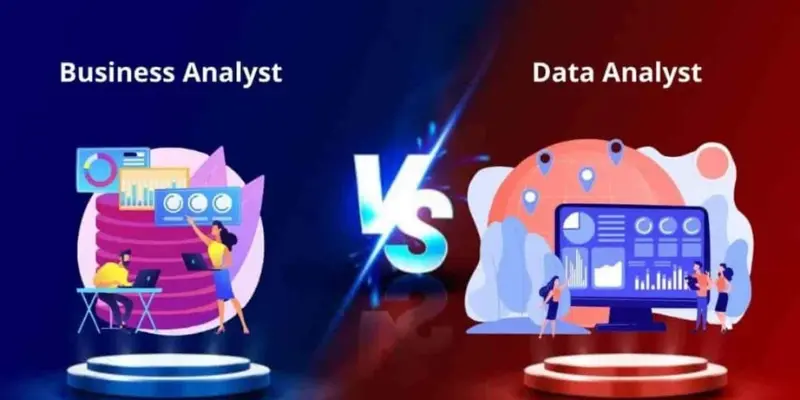In today’s data-driven world, terms like “data analytics” and “business analytics” are frequently used interchangeably, confusing their meaning and scope. However, these fields share similarities but serve distinct purposes and involve different methodologies. Understanding the difference between data analytics and business analytics is essential for professionals looking to leverage data effectively in their respective domains, particularly those considering an MBA in Analytics.
What is Data Analytics?
Data analytics entails evaluating raw data to determine what information it contains. It encompasses various techniques and tools to uncover datasets’ patterns, trends, correlations, and insights. Data analytics focuses on transforming data into actionable insights to support decision-making processes. It involves data mining, descriptive analytics, diagnostic analytics, predictive analytics, and prescriptive analytics. Professionals in data analytics typically work with large volumes of structured and unstructured data to derive meaningful conclusions.
What is Business Analytics?
On the other hand, business analytics is a broader discipline that encompasses data analytics within a business context. While data analytics focuses on analyzing data to generate insights, business analytics extends beyond including applying those insights to drive business decisions and strategy. Business analytics involves a more holistic approach, incorporating data analytics techniques, domain knowledge, business objectives, and strategic considerations. It aims to address specific business challenges, improve performance, optimize processes, and drive organizational innovation. Individuals interested in pursuing careers in this field may consider enrolling in an MBA in Business Analytics in Chennai programs to gain specialized knowledge and skills tailored to the needs of the industry.
Key Differences
Scope and Focus
- Data analytics primarily analyses data to uncover patterns and trends, irrespective of their business implications.
- Business analytics, however, analyzes data, interprets its business relevance, and uses insights to inform strategic decision-making.
Application
- Data analytics is widely used across various industries for market research, trend analysis, and performance optimization.
- Business analytics explicitly addresses business challenges, such as improving operational efficiency, enhancing customer experience, and identifying growth opportunities.
Methodology
- Data analytics employs statistical and machine learning techniques to analyze data and derive insights.
- Business analytics integrates data analytics with business knowledge, domain expertise, and strategic planning to drive business outcomes effectively.
Understanding the distinction between data analytics and business analytics is crucial for professionals who leverage data effectively. While data analytics primarily involves analyzing data to extract insights, business analytics goes further by strategically applying those insights within a business context. Both disciplines are instrumental in driving informed decision-making and organizational success. Therefore, aspiring professionals should prioritize acquiring knowledge and skills in both data analytics and business analytics to maximize their impact in today’s data-driven world. Explore the Best MBA Colleges Near Me to embark on your journey towards mastering these essential disciplines and advancing your career in data-driven business environments.
